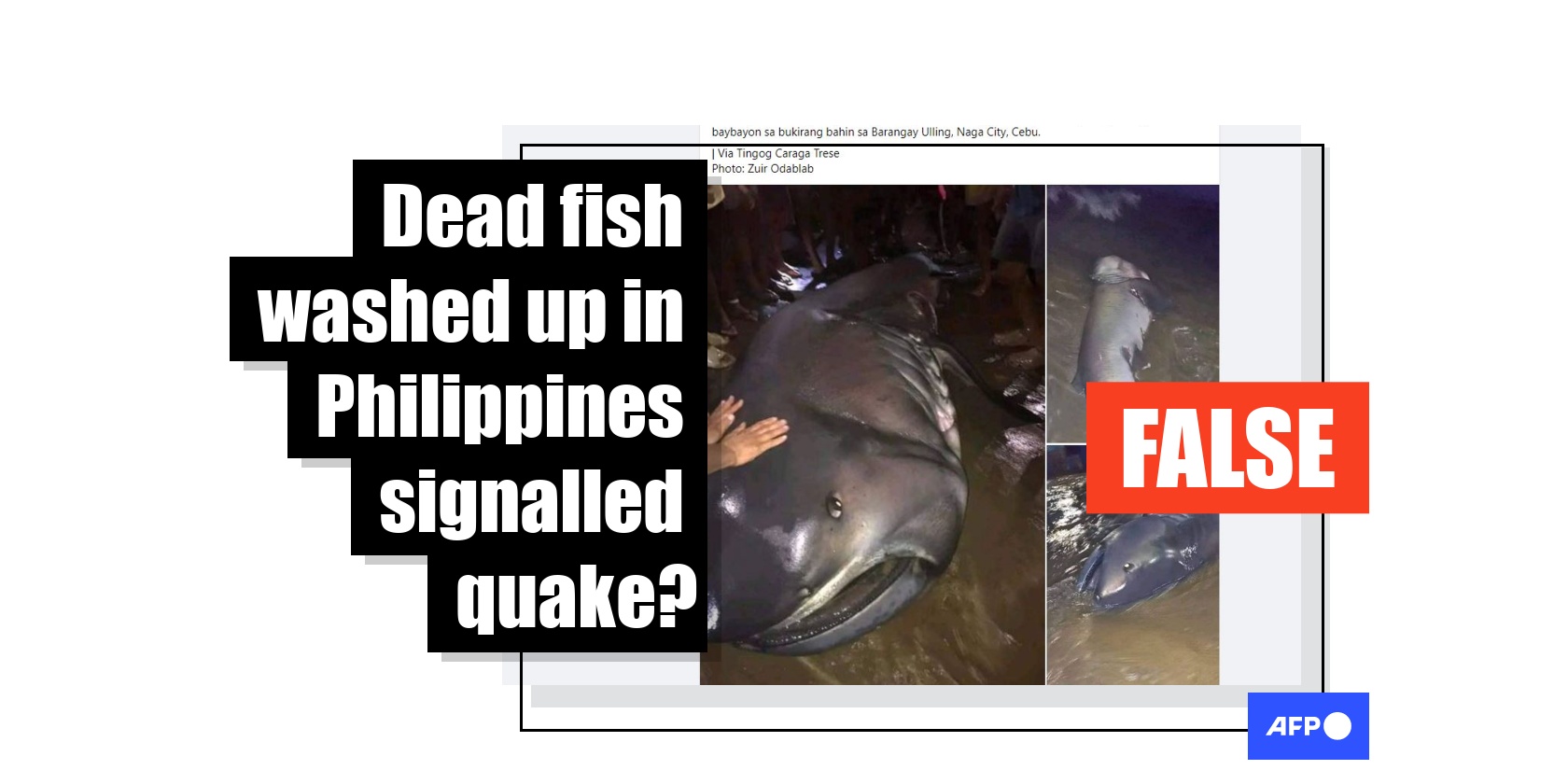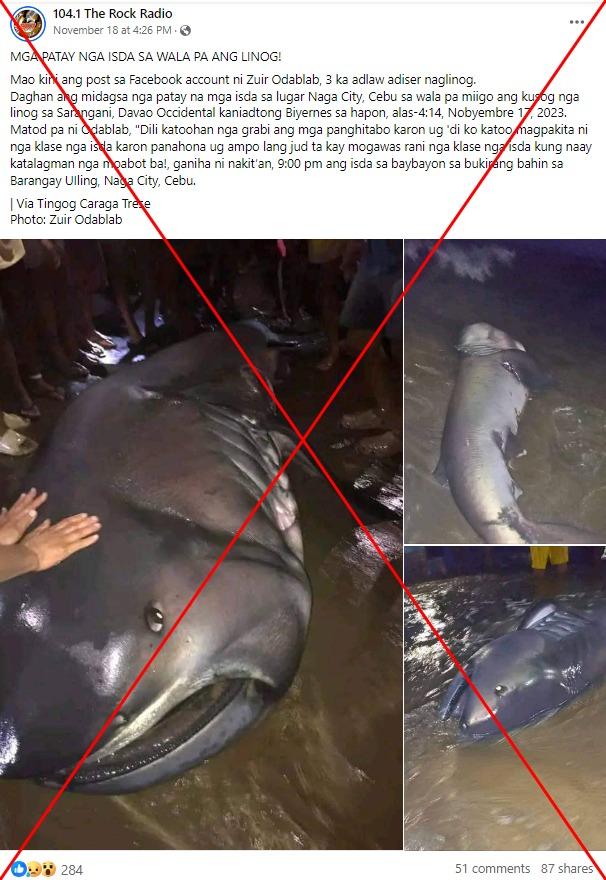
Photos of a dead megamouth shark falsely linked to Philippine earthquake
- This article is more than two years old.
- Published on November 29, 2023 at 09:43
- Updated on November 29, 2023 at 10:14
- 3 min read
- By Ara Eugenio, AFP Philippines
"DEAD FISH BEFORE THE EARTHQUAKE!" reads a post shared on a Facebook page with more than 155,000 followers since it was published on November 18.
The post shares photos of a dead shark, claiming it washed up on the shores of Barangay Uling, a village in Naga city in the central Philippine province of Cebu.
Citing a November 14 post by a Facebook user named "Zuir Odablab", the caption claims the incident was a forewarning of the 6.7-magnitude quake that shook the southern Philippine island of Mindanao three days later, on November 17.

The quake that struck off Sarangani province left nine people dead, caused part of a shopping mall to collapse, triggered power cuts, and sent people fleeing into the streets (archived link).
The photos surfaced in similar Facebook posts here,here and here by several users alongside captions suggesting they believed the shark was linked to the earthquake.
"This is so scary," one user said.
"Oh no, what is going on?" another commented.
No scientific association
The United States Geological Survey (USGS) say that earthquakes cannot be predicted and that while there are anecdotes of bizarre animal behaviour before seismic activity, there is no mechanism that can scientifically explain the connection (archived links here and here):
Johann Tejada, a marine biologist at the Philippines' Bureau of Fisheries and Aquatic Resources, said that such an incident cannot be associated scientifically with the quake in Mindanao.
"Of course, underwater animals have the ability to sense if there's any water disturbance and that could affect their movement, but in this case, you have no scientific basis because the earthquake occurred days later and struck south of Mindanao, which is very far from Leyte," he told AFP on November 28.
A Google reverse image and keyword searches found a Facebook post by the Municipal Disaster Risk Reduction and Management Office of Silago, a town in Southern Leyte, that indicated the shark was found there and not in Naga, Cebu (archived link).
"The discovery of a dead shark washed ashore in Barangay Poblacion District 2, Silago, Southern Leyte on the evening of November 11, 2023 is indeed an unusual occurrence, especially considering the rarity of such incidents in the area," the post says, sharing similar photos of the dead fish.
Alfie Almine, a local disaster officer for Silago, also said the photos were taken in the town.
"I can confirm this occurred here in our town here in Silago. The photos were submitted to us by a local government employee, and my own staff were in the scene when the shark was found," he told AFP on November 28, adding that the circumstances surrounding the shark's death were still under investigation.
Based on a joke
The Facebook user quoted in the false posts told AFP his November 14 post was originally intended as a joke.
"The post's intention is pure sarcasm, as I even mentioned 'shore in the mountain' which is obviously factually incorrect," Zuir Odablab, a Naga resident whose real name is Jodan Ruiz Baldado, told AFP on November 24.
"That indicates I wasn't being serious at all, and not to mention, Barangay Uling is located in the mountainous parts of Naga."
Google Maps imagery shows Barangay Uling is a landlocked, upland village that is about 15 kilometres (9 miles) away from the nearest coast (archived links here, here and here).
"Barangay Uling is a mountain village. There's no sea there, just a creek," Hannah Panilag, a local disaster communications officer for Naga, told AFP on November 24.
Misinformation related to natural disasters has regularly spread on social media in the Philippines, as debunked by AFP here, here, and here.
Copyright © AFP 2017-2026. Any commercial use of this content requires a subscription. Click here to find out more.
Is there content that you would like AFP to fact-check? Get in touch.
Contact us
